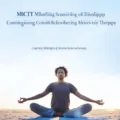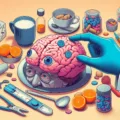Do you often find yourself trapped in a spiral of negative thoughts, assuming the worst will happen in every situation? This common cognitive distortion is known as catastrophizing, and it can exacerbate stress and anxiety, impacting your mental health and overall well-being. In this comprehensive guide, we’ll explore strategies to stop catastrophizing and take back control over your thoughts.
Understanding Catastrophizing
Catastrophizing occurs when an individual perceives a situation as far worse than it actually is, often anticipating disaster. It’s a pattern of thinking that can cause a significant amount of unnecessary stress. Recognizing this habit is the first step towards change.
Recognize Your Catastrophic Thoughts
To stop catastrophizing, you must first become aware of when and how you do it. Pay attention to your thought patterns and note when you start predicting a negative outcome. Awareness is key to making a conscious shift in thinking.
Challenge and Reframe Your Thoughts
Once you’ve identified a catastrophic thought, challenge its validity. Ask yourself how likely it is that the worst-case scenario will happen, and try to reframe your thoughts in a more positive or realistic light.
Practice Mindfulness and Presence
Mindfulness techniques can help you stay grounded in the present moment, reducing the tendency to jump to future-oriented, catastrophic conclusions. Practices such as meditation and deep breathing exercises can be beneficial.
Focusing on Solutions, Not Problems
When you find yourself catastrophizing, shift your focus to finding solutions to the problem at hand, rather than ruminating on the potential negative outcomes. This proactive approach can help break the cycle of negative thinking.
Seek Professional Help if Necessary
If catastrophizing is significantly impacting your life, it may be helpful to seek the guidance of a mental health professional. Therapy can provide you with personalized strategies to manage and overcome this pattern of thinking.
FAQs About Catastrophizing
What is catastrophizing?
Catastrophizing is a cognitive distortion where a person assumes the worst will happen, often leading to increased anxiety and stress.
Why do people catastrophize?
People may catastrophize due to past experiences, anxiety, or learned behavior. It’s often a way to attempt to prepare for or control future outcomes, albeit in an unhelpful manner.
How can I tell if I’m catastrophizing?
You may be catastrophizing if you frequently find yourself expecting disaster or feeling overwhelmed by assuming the worst possible outcomes in situations.
Can catastrophizing affect my physical health?
Yes, chronic stress and anxiety resulting from catastrophizing can lead to various physical health issues, such as headaches, digestive problems, and sleep disturbances.
Is it possible to stop catastrophizing?
Absolutely. With self-awareness, cognitive-behavioral strategies, and sometimes professional help, you can learn to stop catastrophizing and lead a more balanced emotional life.









